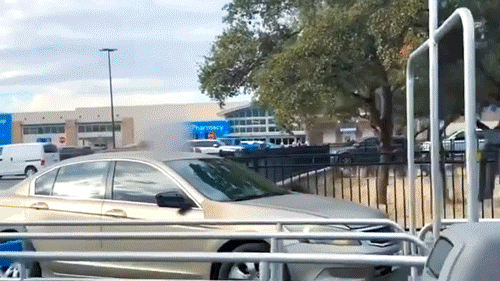British lawmakers on Thursday voted against military intervention in Syria, in a major setback for both British Prime Minister David Cameron and the Obama administration in their push to punish the Assad regime for an alleged chemical weapons strike.
Cameron, who has been aligned with President Obama in advocating a tough response, indicated after the vote that he would abide by the outcome. The measure was narrowly defeated, by 285 votes to 272 votes.
The outcome raises serious questions for Obama, who has not yet made a decision on the way forward in Syria but had indicated his administration would need international support for any strike. After failing to win support for an anti-Assad resolution before the U.N. Security Council, U.S. officials were looking to allies like Britain and France to build a coalition for action in Syria.
The White House said after the vote that it would continue to assess its options on Syria.
"The U.S. will continue to consult with the U.K. Government – one of our closest Allies and friends. As we’ve said, President Obama’s decision-making will be guided by what is in the best interests of the United States," said National Security Council spokesperson Caitlin Hayden.
Speaking at a news conference Friday in Manila, Defense Secretary Chuck Hagel said the Obama administration was consulting with allies to "further develop the facts" about last week's alleged chemical weapons attack
The U.K. vote was on a preliminary measure and not technically binding. Even if the measure was approved, Cameron would likely have had to seek another round of approval in a matter of days. But Cameron now risks a political backlash if he proceeds at all; he said Thursday that he understands the British people do not want to see the U.K. involved in Syria.
"It is very clear tonight that, while the House has not passed a motion, it is clear to me that the British parliament, reflecting the views of the British people, does not want to see British military action. I get that and the government will act accordingly," he said.
Polls in the United States have shown similar distaste among Americans for military action in Syria. But Obama and his top advisers, despite the vote in London, were trying to convince Congress on Thursday of the need to respond, holding a series of briefings as lawmakers increasingly voiced skepticism toward any military strike.
The president on Thursday afternoon personally briefed House Speaker John Boehner, who a day earlier wrote to the president urging him to provide a "clear, unambiguous explanation" on how military action would serve U.S. interests.
Boehner spokesman Brendan Buck reiterated those questions after the call. "Only the president can answer these questions, and it is clear that further dialogue and consultation with Congress, as well as communication with the American public, will be needed," he said.
The White House also held a major briefing Thursday evening with key lawmakers. Many of those lawmakers are still in their districts and elsewhere for the summer recess, so most were dialing in for a conference call.
Following the briefing, several lawmakers expressed a willingness to consider intervention in Syria.
"I would support surgical,proportional military strikes given the strong evidence of the Assad regime's continued use of chemical warfare," said Sen. Bob Corker (R-TN), the top Republican on the Senate Foreign Relations Committee.
Sen. Robert Menendez (D-NJ), chairman of the Senate Foreign Relations Committee, said, "tonight's briefing reaffirmed for me that a decisive and consequential U.S. response is justified and warranted."
Over the past 48 hours, dozens of other lawmakers have spoken out on the potential for military action in Syria. Rep. Dana Rohrabacher, R-Calif., a member of the House Foreign Affairs Committee, called the policy "a big step in the wrong direction."
Yet the White House is standing by its position that intervention in Syria, in response to an alleged chemical weapons attack last week, would serve U.S. interests. White House spokesman Josh Earnest also rejected the notion that the current situation was in any way similar to the run-up to the Iraq war under the George W. Bush administration.
"I think that there are some very important differences. What we saw in that circumstance was an administration that was searching high and low to produce evidence to justify a military invasion, an open-ended military invasion of another country, with the final goal being regime change," he said.
"What we have seen here, tragically, is a preponderance of evidence available in the public domain that the Assad regime used chemical weapons against innocent civilians. And we don't have to search high and low for that evidence."
Meanwhile, the administration was continuing to face turbulence among its allies. Amid the vote in Britain, the five permanent members of the Security Council -- including the U.S. and Britain -- were meeting in New York. Russia has so far proved most resistant to any involvement in Syria.
In an interview with PBS on Wednesday, Obama bluntly declared that the Syrian government carried out a chemical weapons attack last week. He suggested a "shot across the bow" for Syria could be in the interest of U.S. national security.
Meanwhile, battle lines are being drawing in the international community. After Russia refused to sign on to a Britain-drafted resolution before the U.N. Security Council on Wednesday, Reuters reports that Russia is sending two warships to the Mediterranean Sea, where the U.S. has also positioned ships. A fifth U.S. Navy Destroyer was sent into the eastern Mediterranean on Thursday.
The Navy has also boosted its presence in the Persian Gulf, adding one more aircraft carrier.













































